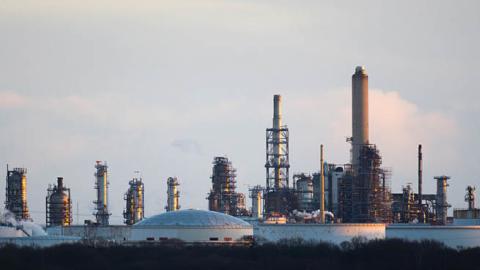The modern American oil industry traces its origin to the summer of 1859 when Edwin Drake’s 70-foot well found an immense deposit of oil in Titusville, Pa. At a time when a rising population created a demand for light that the whale-oil industry could no longer supply, and when the industrial revolution was creating an unprecedented demand for both fuel and machine lubricants, the discovery of large quantities of “rock oil” in accessible deposits close to the burgeoning cities of the East Coast unleashed a wave of wildcat exploration and technological development that would transform the American and world economies, underwrite the expansion of American world power in the 20th century, and, some would argue, ultimately threaten the future of human civilization as carbon dioxide and other greenhouse gasses emitted by the refining and burning of oil and its frequent companion natural gas fueled a dramatic rise in global temperatures.
Notre Dame historian Darren Dochuk tells this story in “Anointed With Oil: How Christianity and Crude Made Modern America”—one of the most original and insightful accounts of recent American history to appear in many years.
In Mr. Dochuk’s telling, the oil industry’s evolution in Pennsylvania and then elsewhere began as an affair of freelance prospectors. In the absence of real geological knowledge, they relied on intuition, visions and dowsing rods to find new pools of underground oil. Fortunes were made and lost overnight, and the hastily constructed towns of the oil rush, fire prone and poorly policed, were home to saloons, prostitutes and professional gamblers. Quacks, misfits and grifters flocked to the new oilfields, as did sober businessmen like John D. Rockefeller.
Read the full review in Wall Street Journal















